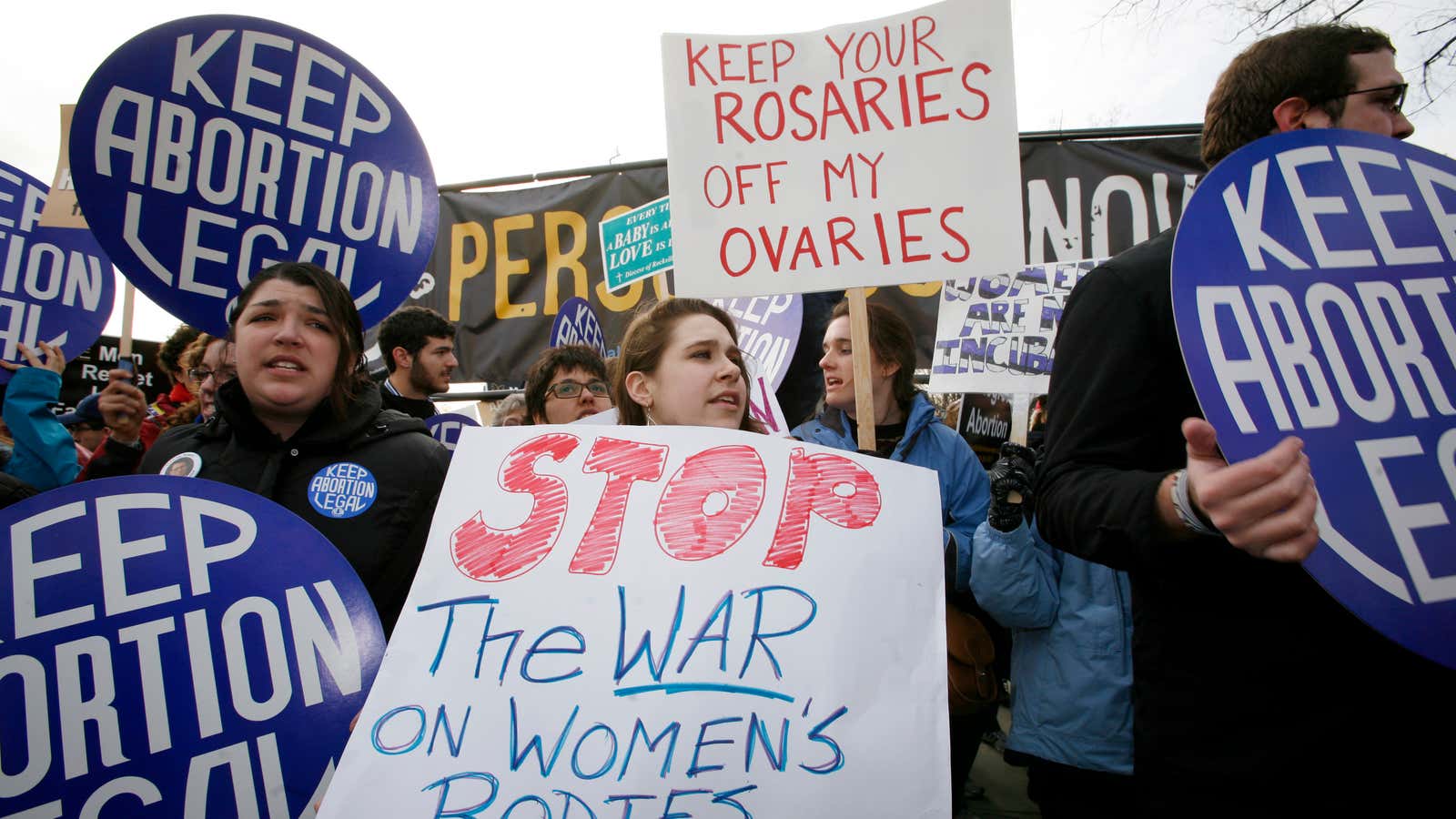A recent study has found that 95% of women who had an abortion do not regret it.
Researchers at the University of California, San Francisco, followed 667 women for three years after they had abortions in order to determine whether or not the women regretted the decision to end their pregnancies. Researchers used data modeling to correct for variable factors in the study and ultimately found that the average participant was over 99% likely to report that abortion was the right decision. In addition, they found that both negative and positive emotions related to abortion decreased markedly over the observed time period.
This is a big deal, especially given the highly politicized nature of abortion rights in America today. Ever since the US Supreme Court ruled that a woman’s right to an abortion is protected by the 14th amendment in 1973, anti-abortion activists have fought hard to limit access to abortion and reproductive health resources.
In particular, anti-choice groups have tried to argue that women can’t be trusted to make decisions about their own bodies. The pseudo-medical concept of “post-abortion syndrome” has been used successfully in 28 states to pass legislation requiring women receive counseling prior to their abortion as well as forcing abortion providers to observe 24- to 72-hour “waiting periods” before conducting the procedure.
The UCSF study included a geographically diverse group of women aged 14-46, with varying education and socio-economic levels, some of whom received abortion counseling and some of whom did not.
In 2012, research conducted by some of the same UCSF reproductive health experts found that 87% of women were highly confident in their decision to receive an abortion before going into counseling. Meanwhile, required in-person counseling and waiting periods have been proven (see page 15) to put undue financial and emotional stress on women seeking abortions, in some cases blocking women from receiving the procedure.
The end result? Women are forced to work harder to secure their constitutional right to abortion—which of course is the aim of anti-abortion politicians and activists.
Advocates will continue to claim potential emotional damage to women from abortion as a defense for anti-choice policies. But this study speaks for itself—the main thing causing women sustained distress related to abortion is politics intervening in their reproductive decisions.
